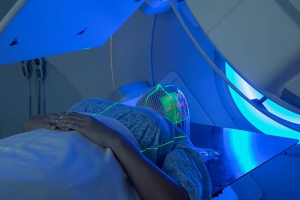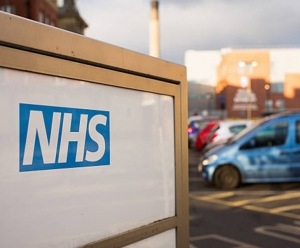New Radiotherapy Machines to Speed Up Cancer Treatment Across the UK
Thousands of cancer patients across the UK are set to benefit from faster, more precise treatment thanks to a major upgrade in NHS radiotherapy equipment. From August, 28 hospitals – including those within the Royal Berkshire and Hampshire Hospitals NHS Foundation Trusts – will begin receiving state-of-the-art linear accelerator (LINAC) machines, as part of a £70 million government initiative to modernise cancer care.
These advanced machines will replace ageing equipment, some of which is more than a decade old. They are designed to more accurately target tumours while reducing the risk to patients and the chances of equipment failure, which has previously led to missed appointments. It's estimated that this upgrade could prevent around 13,000 cancellations each year due to breakdowns.
The Department of Health and Social Care expects the new technology to enable up to 27,500 additional radiotherapy treatments annually by March 2027. Of these, approximately 4,500 patients could receive their first cancer treatment within 62 days of being referred, helping to meet urgent care targets and improve survival outcomes.
This development follows the recent installation of 13 new bone density scanners, which will provide thousands more diagnostic tests each year. Government figures also show that over 3 million appointments have taken place since June 2024 as part of broader efforts to reduce waiting times and speed up diagnoses.
Clacton Could Pioneer NHS Health Checks from Age 30
Plans are being developed to offer free NHS health checks to people as young as 30 in Clacton-on-Sea, in what could become a national first. Currently, these routine checks are offered to individuals aged 40 to 74, but lowering the starting age aims to tackle significant health disparities in the coastal town.
The proposal, discussed at a Suffolk and North East Essex Integrated Care Board (ICB) meeting, is intended to catch early signs of conditions such as heart disease, diabetes, and stroke. The checks would include routine screenings like cholesterol and blood pressure testing. Dr Ed Garrett, who shared the update, said the plan is moving forward and could help address the area’s lower life expectancy.
Clacton has long been a focus for health inequality intervention. A 2021 report on coastal communities by Chief Medical Officer Sir Chris Whitty highlighted the higher rates of serious illness and reduced life expectancy in towns like Clacton. Local officials have noted that in some areas of the town, life expectancy can be up to 18 years lower than in more affluent parts of Essex.
An NHS spokesperson confirmed the proposal is still in the early stages, and further details will be shared once the plans are more fully developed.
AI Tools Offer Support for UK’s Social Care Workforce
Technology is becoming a key part of the UK’s care sector, with innovations like pain-detecting apps, sleep-monitoring sensors, and robotic training aids beginning to transform services. As the ageing population grows, care homes and providers are increasingly turning to AI to ease workloads and improve outcomes for residents.
Some care homes are already using tools like Painchek, an app that helps identify discomfort in non-verbal residents, and night-time sensors that alert staff to unusual activity. These tools aim to improve care quality while reducing preventable hospital admissions and allowing residents to rest undisturbed. Meanwhile, researchers in Oxford are developing robots that help train carers by mimicking patient reactions to physical touch.
Despite the benefits, experts urge caution. Dr Caroline Green from the University of Oxford warns that AI must be used carefully and ethically, ensuring it complements rather than replaces human interaction. She raised concerns about data privacy, potential biases, and a lack of national guidance on AI in social care.
While the government is keen to promote innovation, voices across the sector stress that AI should be a supportive tool - not a substitute for skilled professionals. As reliance on overseas workers falls, experts argue the human element of care must remain at the heart of the system.
Government Pledges £102m to Upgrade One in Six GP Surgeries Across England
A major investment of £102 million has been announced to help modernise and expand around one in six GP practices in England. The government says this is the largest investment in GP facilities in five years, with work expected to begin over the summer. The funding will support improvements such as converting office areas into consultation rooms and developing brand-new practice sites.
This move comes amid growing dissatisfaction with GP services, as recent figures show that 40% of GPs consider their premises unfit for purpose. Health Secretary Wes Streeting welcomed the funding as a “significant step” but acknowledged that the overhaul won’t resolve all the challenges facing primary care. He added that the improvements are possible due to recent financial decisions made during the Budget.
Medical leaders have expressed cautious optimism. Professor Kamila Hawthorne, Chair of the Royal College of GPs, said the funding was a “welcome short-term measure” but called for sustained investment to tackle outdated infrastructure that limits both staff efficiency and patient care. Similarly, the NHS Confederation stressed the importance of continued support for modern facilities and digital advancements.
Despite the investment, it remains unclear which of England’s 6,252 GP practices will receive funding. The announcement follows a separate £80m initiative launched last month to enhance community care and reduce hospital admissions.







